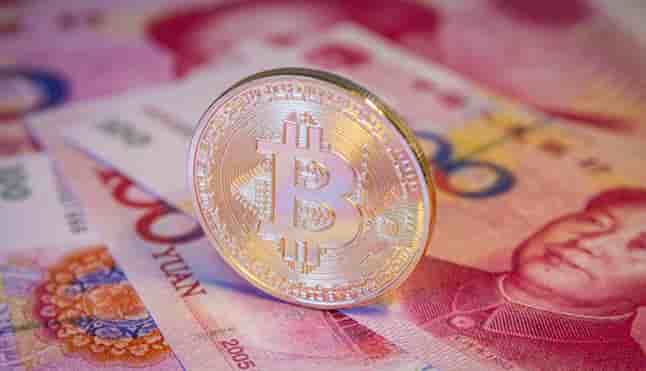
China accelerates preparations to create its own virtual currency, at a time when Facebook promises to revolutionize the global payment system with its "pound."
This is a change for Beijing, which in 2017 accused cryptocurrencies of being "the instrument of criminal activity" at the service of drug trafficking and financial fraud.
At the end of September, the head of the Central Bank, Yi Gang, said that the future virtual currency would be associated with electronic means of payment (WeChat, AliPay ...) that the Chinese already use in their phones to pay for most of their purchases .
Yi gave no dates or details about how the coin works, but the Chinese press talks about a launch on November 11, the day of the "bachelor party", when there is a frenzy of online shopping.
"We can consider a blockchain technology (such as bitcoin) or another that evolves from existing electronic payments," Yi said. But it will be centrally managed, contrary to what happens with bitcoin.
"The central bank will be at the first level as coordinator and the other banking institutions in the country below," said Stanislas Pogorzelski, chief editor of the specialized site Cryptonaute.fr, who added that the purpose is to "replace cash."
Monetary shock
Until two years ago, China's three main bitcoin transaction platforms (BTC China, Okcoin and Huobi) accounted for more than 98% of world trade, according to the bitcoinity.org reference site.
The sector was not regulated and the transactions went under the radar of the authorities, so the government closed the cryptocurrency exchange platforms in 2017.
But the communist regime fears being overtaken by the future currency of Facebook, locked in China.
The pound, whose launch is scheduled for next year, will allow you to buy goods and pay as easily as sending an instant message.
The pound, like bitcoin, "represents a danger to the yuan" at a time when Beijing is concerned about stabilizing its currency, says Song Houze, of the MacroPolo reflection group, specializing in the Chinese economy.
The announcement of the birth of the pound is an "alert" for Beijing, according to an exalted central bank official quoted in the Chinese press. He explains that it could shock the international monetary system.
The pound project is rejected by several governments, such as the United States and some in Europe, concerned about Facebook's bad reputation on issues of privacy and protection of personal data and afraid of being used to deceive the Treasury.
Several companies, such as Visa and Mastercard bank card issuers, the eBay online trading platform, withdrew from the project.
“Last bulwark of privacy”
Song warns that the Chinese central bank should not be left out of the fact that "the use of paper money declines."
With a national cryptocurrency, the authorities will have "a better perception of transactions in the country," said analysts at Trivium China, based in Beijing.
The virtual currency could help "improve risk management and reduce financial misappropriations," they said in a note.
The central bank may "obtain new information that it cannot obtain with a cash transaction," Song said.
Less traceable, the cash currency "represents the last bulwark in terms of privacy," says Pogorzelski.
In a country where "social credit" systems and facial recognition surveillance cameras are generalized, the cryptocurrency could allow "to monitor more the facts and gestures of the population," he warns.
Digital Newspaper El Heraldo
